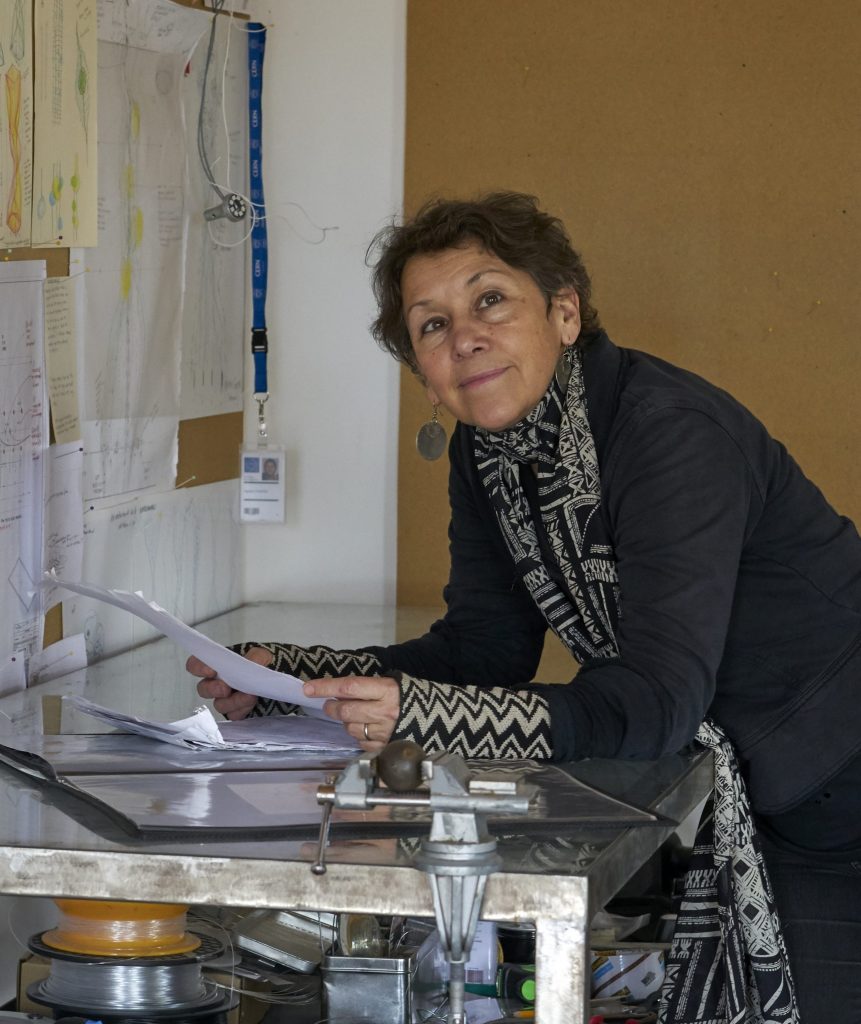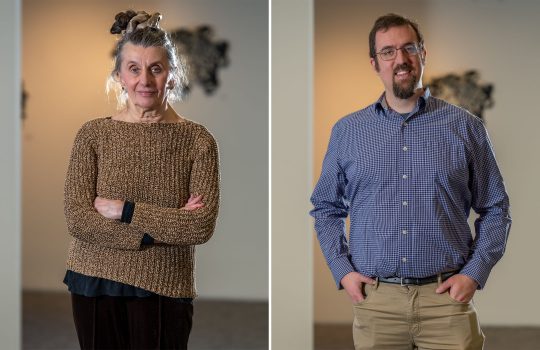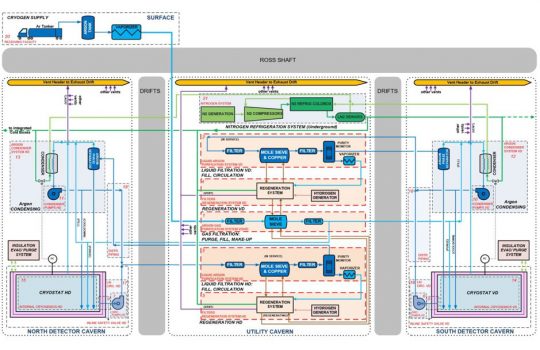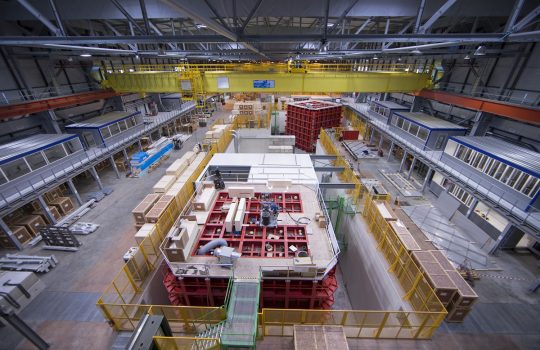New media artist Agnes Chavez will bring her creative approach to integrating art, science and technology to the U.S. Department of Energy’s Fermi National Accelerator Laboratory. She has been named 2024 guest artist by the Fermi Research Alliance.
Based out of Taos, New Mexico, Chavez will focus on particles called neutrinos during her tenure, creating an extended reality experience that will stand alone as well as travel with her existing immersive mixed reality art installation called Space Messengers.
Launched at the Festival Internacional de Ciência in Oeiras, Portugal, in 2021, Space Messengers connects New Mexico students ages 14-25 with students around the world through an international ambassador program. Students from Portugal, Mexico, Austria and Ireland have participated so far. Other activities include space-themed curriculum lessons and an international youth exchange program. A focal point of the display is a message board where students write about science they learned as well as their hopes for a sustainable interplanetary future, a topic especially important to Chavez.

Guest artist Agnes Chavez will work with scientists at Fermilab to understand particles called neutrinos. Photo: Agnes Chavez
“My work integrates art, science and technology as tools to inspire artistic, scientific and humanistic literacy, and to raise awareness of humanitarian and ecological issues,” she explained in her guest artist proposal. Chavez especially noted the opportunity she will have to further develop extended reality education techniques. Extended reality encompasses augmented reality, virtual reality, and mixed reality, where digital and physical elements can interact.
“My goal is to discover new ways to use augmented technologies to communicate the importance and relevance of neutrino astronomy, and science in general. I believe that it is essential for citizens to understand the value of artistic and scientific research to become more informed interplanetary citizens.”
Chavez is founder and director of the non-profit STEMarts Lab. With this program, she and her team design and deliver sci-art installations to schools, science organizations and festivals for STEAM education. In 2017, Chavez was commissioned to co-design a permanent art installation called Fluidic Data at the data center of the European laboratory CERN. The STEMarts Lab has also developed STEAM programs for CERN’s ATLAS experiment and for the Department of Energy’s Los Alamos National Laboratory. Most recently, Chavez’s lab was invited to participate in the Ars Electronica Festival, held September 6-10, 2023, in Linz, Austria.
“Agnes Chavez’s work epitomizes a harmonious blend of human inspiration, technology and outreach,” said Visual Arts Coordinator Georgia Schwender, who manages the FRA guest artist program at Fermilab on behalf of FRA. “Her impactful creations are poised to inspire a diverse audience, fostering a deeper comprehension of the groundbreaking research conducted at Fermilab.”
Editor’s note: Work created by former FRA guest composers and artists are featured in the public exhibition Beyond the Visible at the Schingoethe Center of Aurora University Jan. 29 – May 10, 2024. The exhibition will highlight Fermilab-inspired work by Mare Hirsch, David Ibbett, Jim Jenkins, Chris Klapper & Patrick Gallagher, Ricardo Mondragon, Ellen Sandor and Roger Zare.
The FRA guest artist program at Fermilab is funded by the Fermi Research Alliance, which manages Fermilab for the U.S. Department of Energy’s Office of Science. Fermi National Accelerator Laboratory is supported by the Office of Science of the U.S. Department of Energy. The Office of Science is the single largest supporter of basic research in the physical sciences in the United States and is working to address some of the most pressing challenges of our time. For more information, please visit science.energy.gov.



